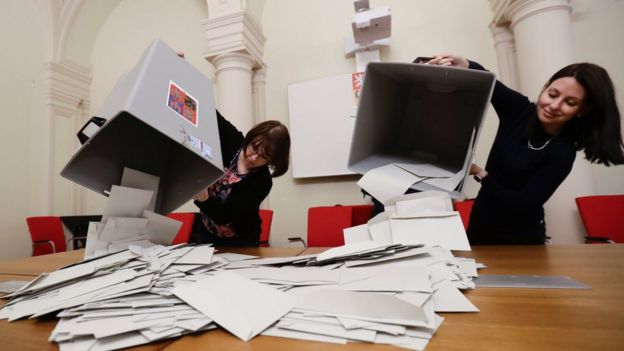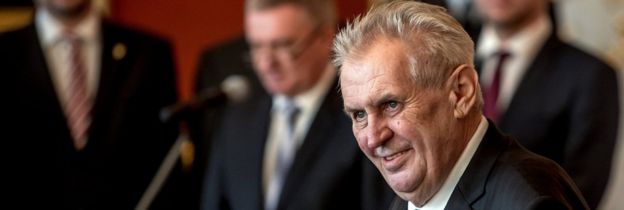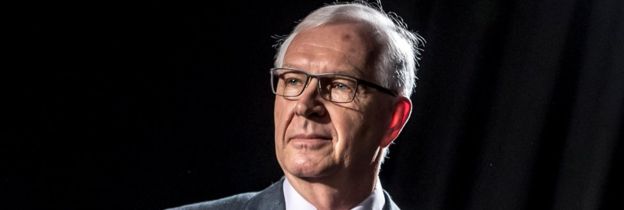
With nearly all results in, Mr Zeman had 39% ahead of his nearest rival Jiri Drahos on 26.3%. Turnout was 61%.
Mr Zeman, 73, is seeking a second five-year term but has stoked controversy with his outspoken views and pro-Russian stance.
The second round is scheduled for 26-27 January.
The BBC's Rob Cameron in Prague says Mr Zeman appears to have done worse than expected in rural areas, where his forthright views on immigrants and political correctness have traditionally struck a chord. To avoid a run-off, he needed to secure more than half the vote.
Mr Drahos knows he has a good chance of unseating Mr Zeman when the two men go head to head in two weeks' time, he adds.
Many voters who chose one of the other seven candidates are likely to switch their allegiance to Mr Drahos in the second round.
President Zeman has become one of the EU's most outspoken opponents of sanctions against Moscow and has also made improving relations with China a priority.

The first round of voting, which took place over two days, passed uneventfully apart from a semi-naked protester who tried to disrupt Mr Zeman casting his vote in Prague on Friday and accused him of being in the pocket of Russian President Vladimir Putin.
She was bundled away and Mr Zeman then cast his ballot, but was visibly shaken by the incident.
Who's who in Czech run-off?
 Milos Zeman
Milos Zeman
- Joined the Communist Party in 1968 during the "Prague Spring", when liberal reforms were crushed by Soviet intervention
- After communism fell he joined the left-leaning Social Democratic party and became leader in 1993
- In 2013 he became the third president of the Czech Republic since it split from Slovakia in 1993
- In his outspoken remarks on immigration he once said that Muslims were "impossible to integrate" into Europe
 Jiri Drahos
Jiri Drahos
- Studied chemistry and technology and was president of the Czech Academy of Sciences from 2009 to 2017
- He is a supporter of EU and Nato membership buts opposes the EU's quota system for distributing migrants, as do all other presidential contenders
- He considers himself a centrist politician who can unite the country
- His main support comes from pro-European voters and people living in cities














No comments:
Post a Comment